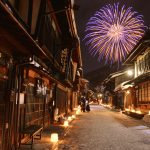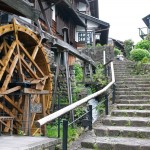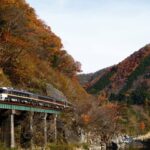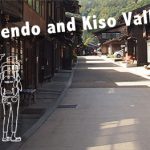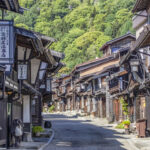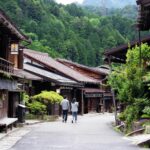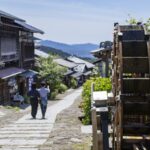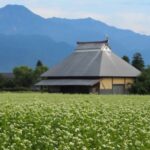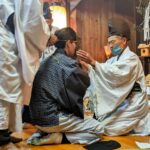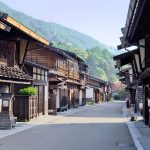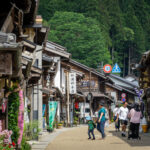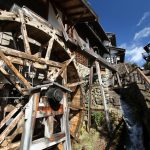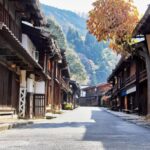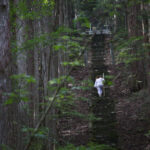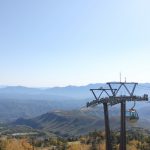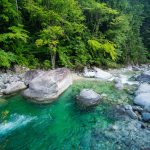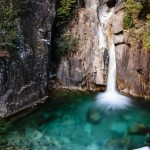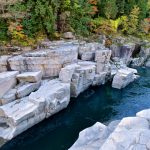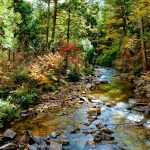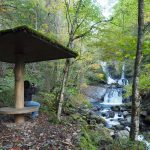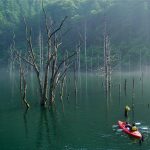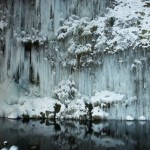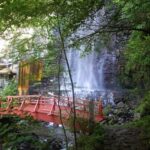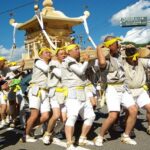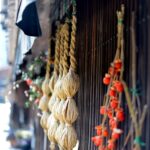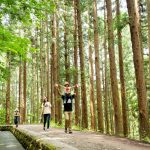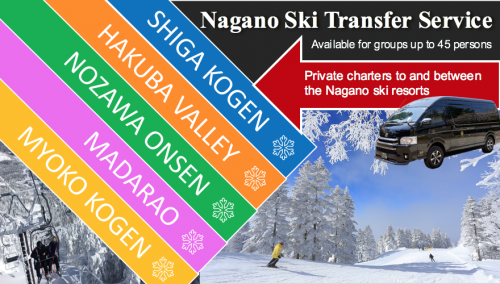Where To Stay In The Kiso Valley & Nakasendo?
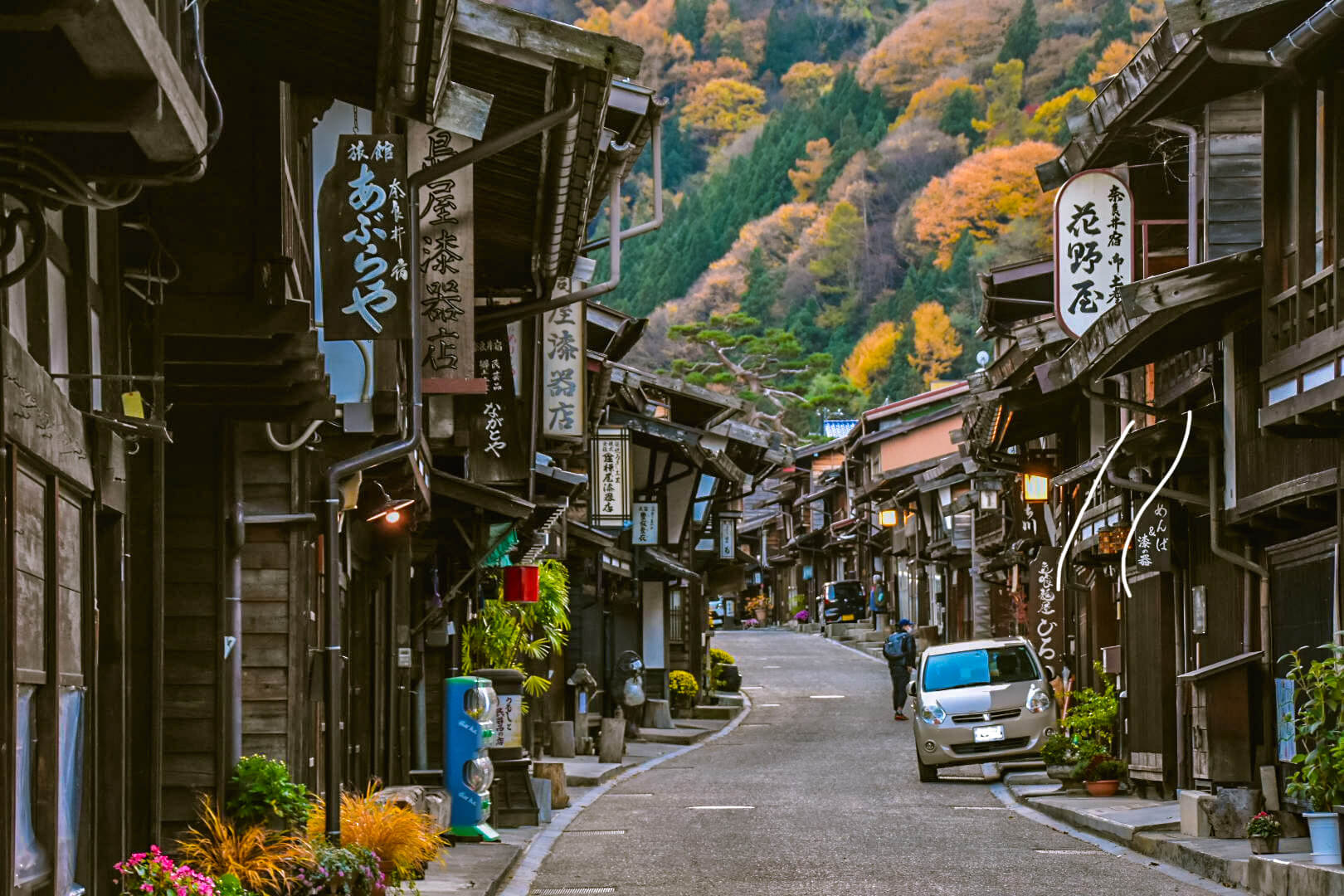
Most famous for the historic Nakasendo and its beautifully preserved ‘shukubamachi’ towns, the Kiso Valley is blessed with some of Central Japan’s most beautiful natural landscapes and cultural sites. The region is home to pristine forests, emerald rivers and waterfalls, and an undulating landscape of mountains and ravines rising to the brooding summit of Mount Ontake – Japan’s second tallest volcano. On this page you will find the following information:
— Where is the Kiso Valley & Nakasendo?
— Best Places to Stay in Kiso Valley & Nakasendo
— 25 Things to Do Around Kiso Valley & Nakasendo
— How to Get to the Kiso Valley
— Tours & Charters Around the Nakasendo Trail
The region has long been a hidden gem among the highlights of Nagano yet in recent years, an increasing number of international visitors has discovered the beauty of the Nakasendo Trail and its historic ‘shukubamachi’. As one of five major ‘highways’ during the Edo Period (1603 to 1868), the Nakasendo was largely used to transport people including feudal lords and their families between Kyoto and Edo – now called Tokyo.
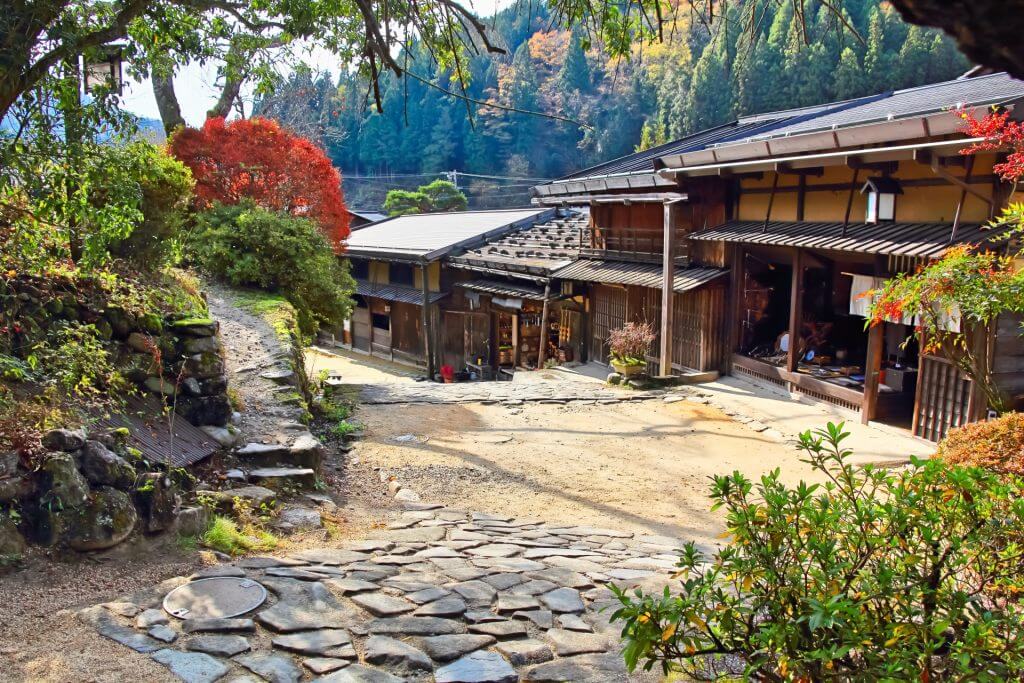
A long the route, sixty-nine ‘shukubamachi’ towns were established to monitor and tax traffic on the road and provide services including accommodation and supplies. Today, the Kiso Valley is home to the best preserved of those towns including Narai, Magone and Tsumago while larger shukubmachi including Kiso-Fukushima have retained much of their character while developing into more functional modern towns.
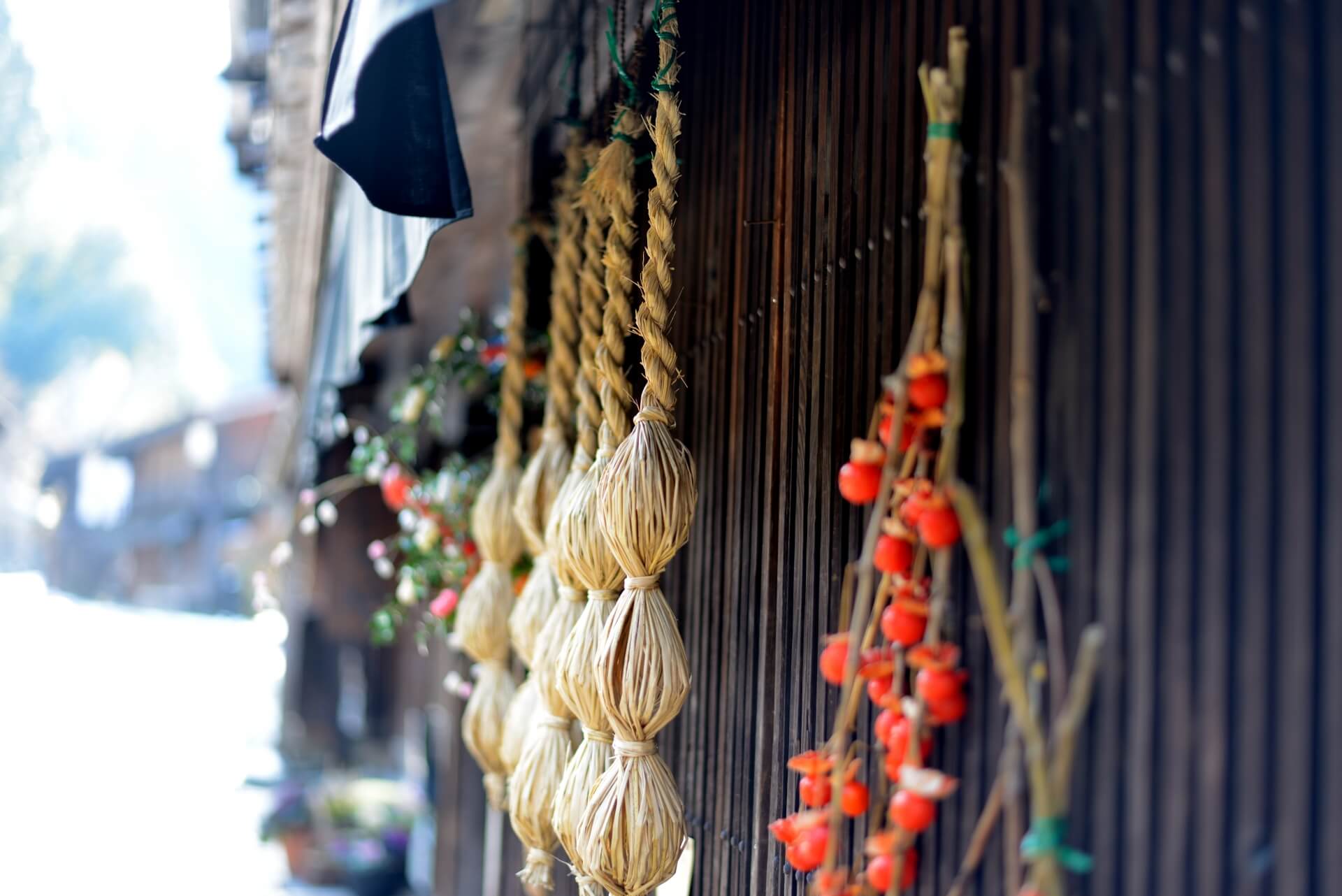
Once in Kiso Valley, visitors discover a beautiful area blessed with pristine forests and waterways and the imposing Mount Ontake. Long considered sacred, Ontake is worshipped by adherents of the Shinto sect ‘Ontake Shinko’, with the most devote practitioners walking the ‘Ontake Kodo’ pilgrimage trails that run through the forests and past waterways of the mountain.
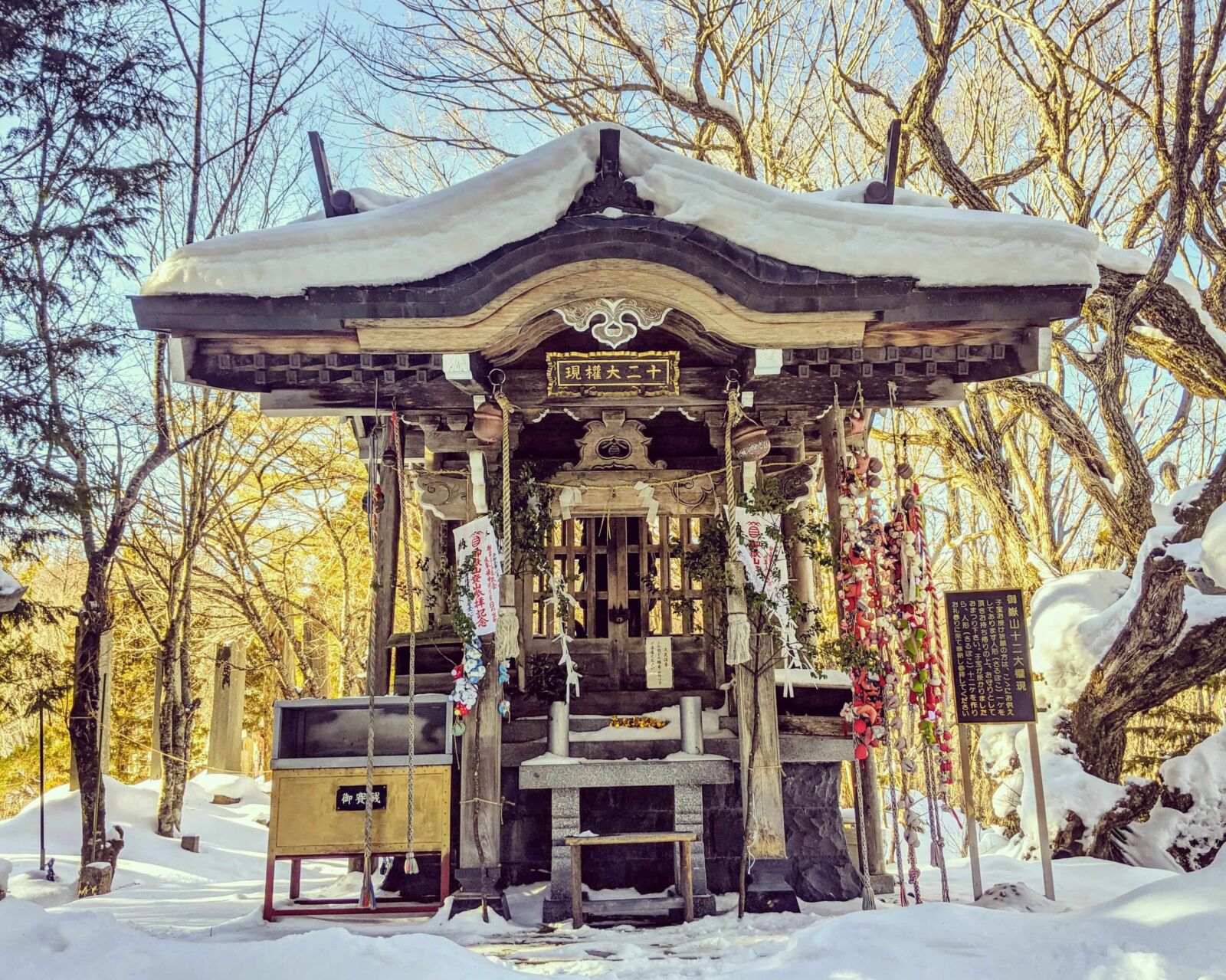
When planning your visit to the Kiso Valley, choosing the right place to stay is the first step to getting the most out of your time there. The information on this page is intended to help you make that choice, starting with the obvious question:
WHERE IS THE KISO VALLEY & NAKASENDO?
The Kiso Valley is a beautiful area located between Shiojiri and Nakatsugawa in Nagano Prefecture. The area lies to the west of Tokyo – around 250KM / 3.5 to 4 hours drive. Running north to south, the valley follows the Kiso River and is known for its pristine waterways, forests, waterfalls and hiking trails including the historic Nakasendo. A key route linking Tokyo – then called ‘Edo’ – to Kyoto during the Edo Period (1603-1868), the Nakasendo spanned a distance of more than 500KM with the area of the route that passed through the Kiso Valley, known as the ‘Kiso-ji’, regarded as particularly beautiful. Parts of the route can still be walked today with the ‘shukubamachi’ towns of Magome and Tsumago being the most popular destinations, located in the southern part of Kiso Valley nearby Nakatsugawa Station.
1 Day Tour
| 1-Day Tour from Nagano & Matsumoto: Step into the Past on the Nakasendo | |
|
| |
| Period | September to December, April to June |
| Time | 08:15 – 18:30 |
| Meeting Place | Nagano Station Matsumoto Station |
| Adult Rate | ¥24,900 |
| Child Rate | ¥12,900 |

Most visitors heading to the Kiso Valley and Nakasendo do so using the Limited Express Shinano service. Running between Nagano and Nagoya, all limited express services on the line stop at Kiso-Fukushima Station and Nakatsugawa Station. As explained below, we recommend staying in the Kiso-Fukushima Station area.
BEST PLACES TO STAY IN KISO VALLEY & NAKASENDO
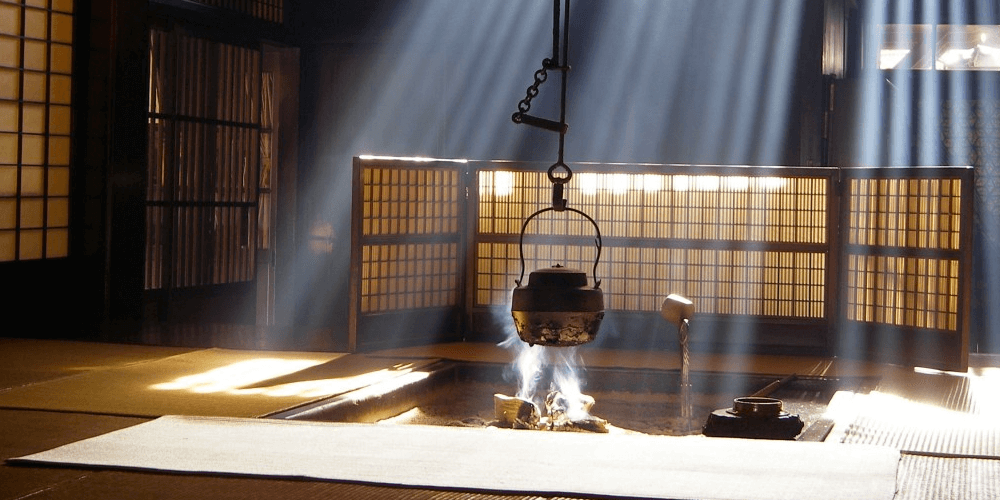
The Kiso Valley lies between Nakatsugawa Station in the south and Shiojiri Station in the north. When looking at a map, if you follow the train line that runs between those two stations, much of which runs adjacent to the Kiso River, you are looking at the area referred to as the Kiso Valley. The most famous destination in the valley is the historic Nakasendo trail and its ‘shukubamachi’ (post towns) however the area also boasts an array of other attractions and activities spread-out along the valley and into the mountains. In this section we will discuss the best places to stay including:
KISO-FUKUSHIMA — NARAI — TSUMAGO — MAGOME — NAKATSUGAWA
The valley covers a large area which can be divided into the central area – most easily accessible via Kiso-Fukushima Station – and the southern area – accessible via Nakatsugawa. The majority of attractions and destinations in the valley are most easily accessed via Kiso-Fukushima Station including the post town of Narai while the southern area includes the towns of Magome and Tsumago – the walk between which is the most popular part of the Nakasendo. Let’s start by considering our recommended place to stay when visiting the Kiso Valley:
KISO-FUKUSHIMA – GATEWAY TO THE KISO VALLEY
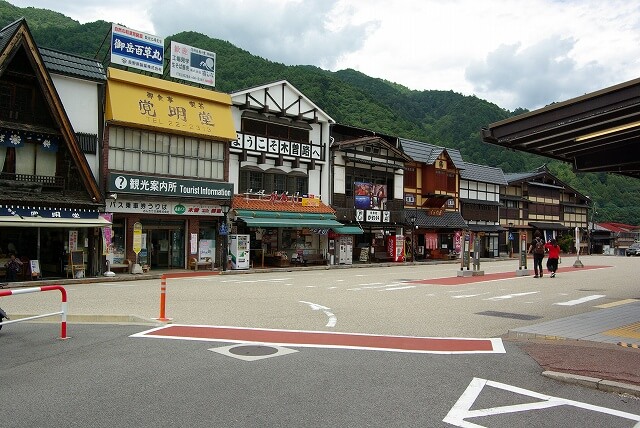
When visiting the Kiso Valley & Nakasendo, we recommend staying in Kiso-Fukushima. The thirty-seventh of the original sixty-nine shukubamachi, Kiso-Fukushima was one of the most prosperous towns along the Nakasendo. Sadly, much of the town was destroyed by fire in the 18th century but a number of historic buildings remain today including the Kiso-Fukushima ‘sekisho’ (checkpoint), the Yamamura Daikan (local magistrate’s residence) and several Zen Buddhist temples including Kozen-ji – home to Japan’s largest rock garden.
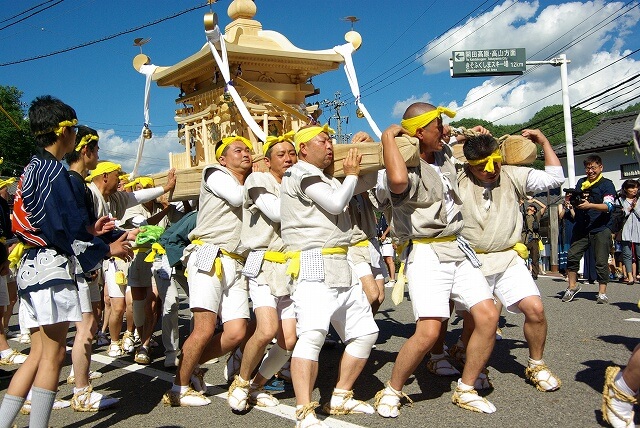
Though Kiso-Fukushima doesn’t match nearby Narai, Magome and Tsumago in the state of its preservation, it is a more functional town with the best range of accommodation and dining options in the region. Accommodation includes ‘ryokan’ (traditional guesthouses) including high-end options, hotels with amenities including Western-style bedding and private bathrooms along with some budget options.
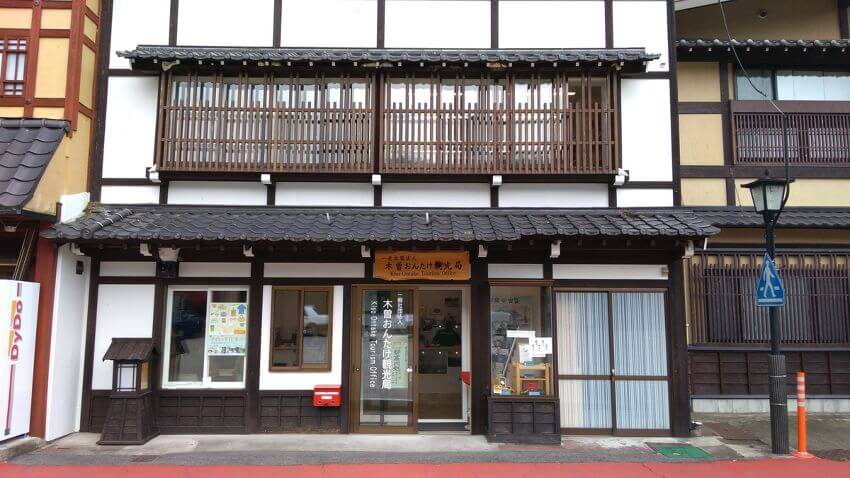
Kiso-Fukushima also has a range of restaurants serving both Japanese and international cuisine, allowing visitors to dine-out at night should they wish to. In contrast, the popular destinations of Narai, Magome and Tsumago are definitely beautiful however accommodation is limited almost exclusively to traditional guesthouses with amenities including on-floor ‘futon’ bedding, shared bathrooms and Japanese breakfast menus, while nightlife and outside dining options in those towns is basically non-existent.
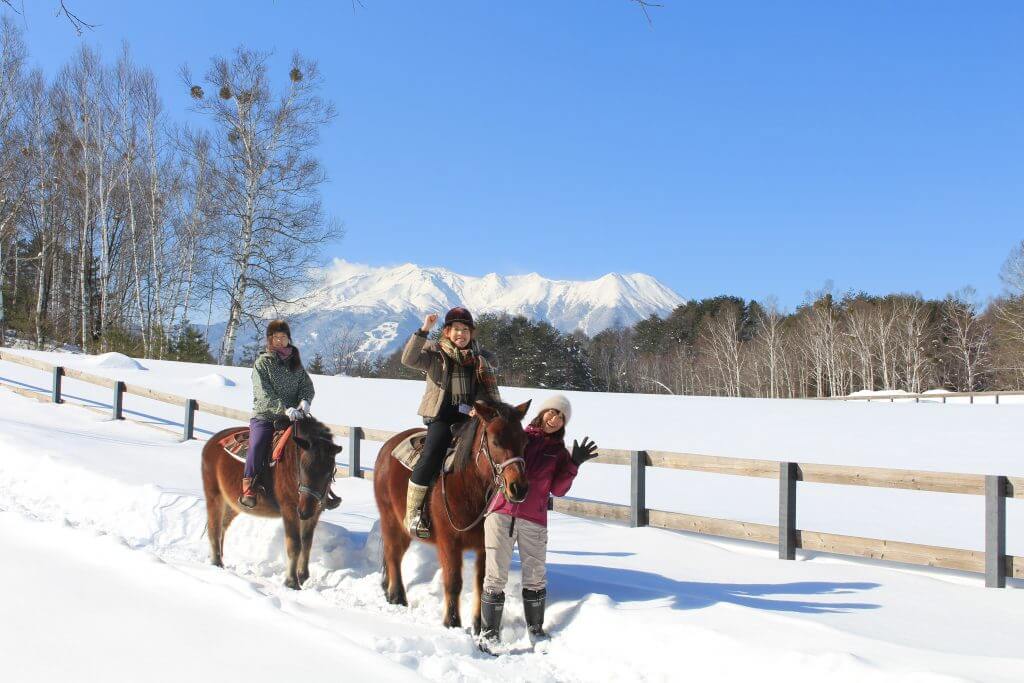
Finally, Kiso-Fukushima Station is one of the most convenient stops on the Shinano Line running from Nagoya to Matsumoto and onto Nagano. All limited express services stop at Kiso-Fukushima, allowing visitors to then use local services onto nearby destinations and express services onto Nagoya, Matsumoto or Nagano. Located directly across from the station, the town’s tourist information office is the best place to pickup information and plan your visit along the Nakasendo and into the Kiso Ontake Mountain Range. With local buses and tours operating from this point, it’s easy to understand why we recommend Kiso-Fukushima as the best place to stay when visiting the Kiso Valley and Nakasendo. For accommodation listings in the area, see our ‘Kiso-Fukushima & Narai Area’ hotel page.
NARAI
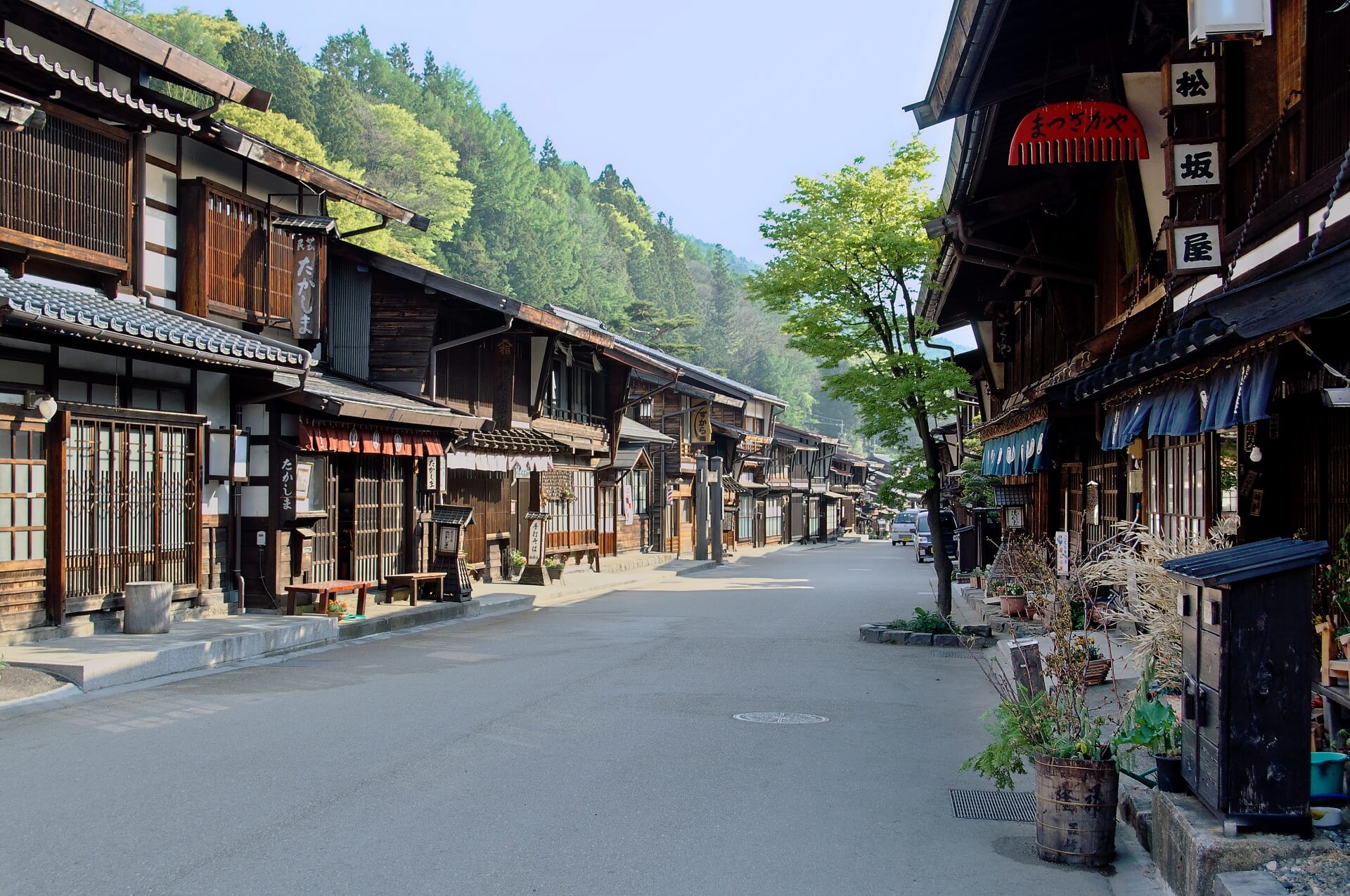
Marking the approximate mid-point of the Nakasendo, Narai was the wealthiest town along the road and today, is one of its best preserved shukubamachi. Once called ‘Narai of a Thousand Houses’ given its size, the current historic centre is around 1km in length and has some excellent restaurants, cafes, shops and a small number of traditional guesthouses. Less busy than Magome and Tsumago, Narai is well-worth visiting however in terms of staying there, you are limited to traditional guesthouses with no other restaurants open at night. Only 20-minutes by local train from Kiso-Fukushima Station, Narai Station is less than 2-minutes walk from the historic town centre making it an easy to visit as a morning, afternoon or day-trip. For accommodation listings in the area, see our ‘Kiso-Fukushima & Narai Area’ hotel page.
1 Day Tour
| 1-Day Tour from Nagano and Matsumoto: Experience Matsumoto Castle and Narai-juku | |
|
| |
| Period | All Year Round |
| Time | 08:15 – 18:15 |
| Meeting Place | Nagano Station Matsumoto Station |
| Adult Rate | ¥23,800 |
| Child Rate | ¥11,900 |

TSUMAGO
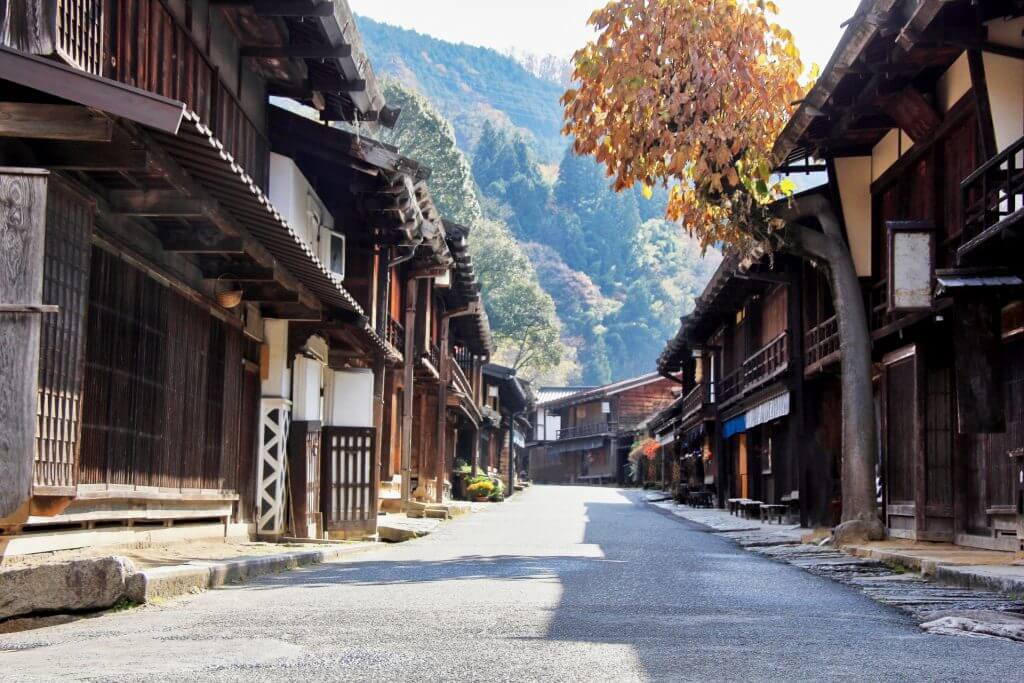
Lying to the south of Kiso-Fukushima, Tsumago can be accessed by local bus from nearby Nagiso Station. Another of the most popular and best preserved towns of the Nakasendo, Tsumago is home to some great little restaurants and traditional guesthouses making it a popular choice for overnight stays. Much like Narai however there is little to do at night with no option other than eating at your guesthouse. Many visitors choose to make the walk from Tsumago to Magome, an undulating and beautiful walk through a mixed landscape of forest and farms, past historic homes and teahouses. The walk can just as easily be made in reverse – from Magome to Tsumago – but requires visitors to send their luggage ahead. Fortunately this service is readily available and can be arranged through most guesthouses. It is important to note that there is no Western-style accommodation in Tsumago. For accommodation listings in the area, see our ‘Magome, Tsumago & Nakatsugawa Area’ hotel page.
MAGOME
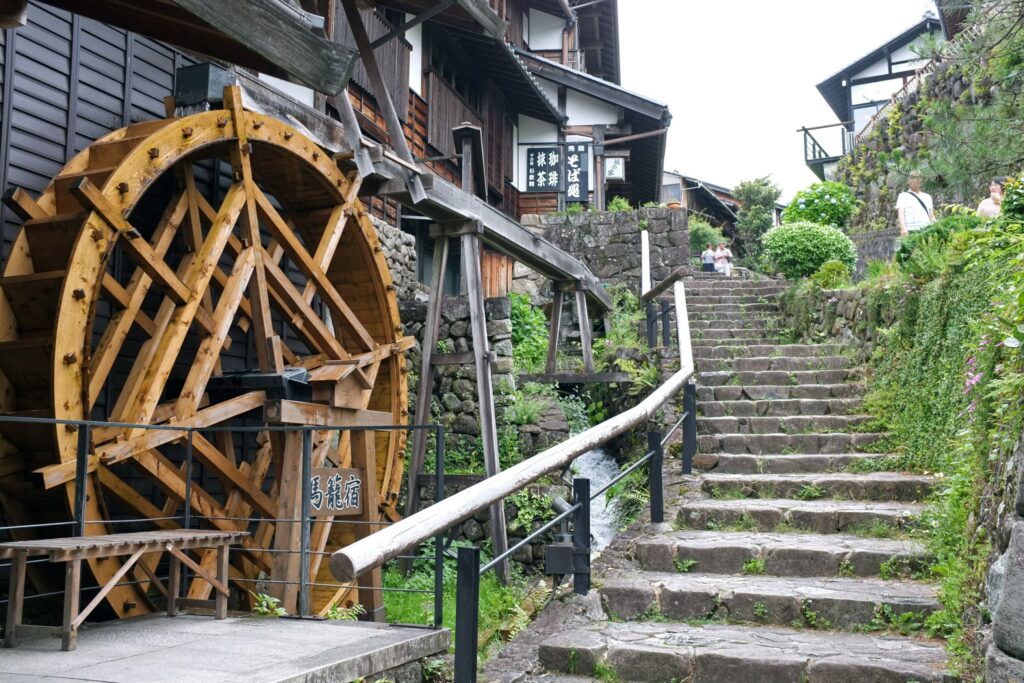
Approximately 7.5km walk from Tsumago, Magome is the third of Kiso’s best preserved shukubamachi. Magomme is known for its steep incline and beautiful views of the surrounding landscape. The historic town centre has been extensively restored including a broad stone walkway with a daytime ban on the entry of vehicles. Guesthouses, restaurants, cafes and stores line the road, with plenty to explore and enjoy during the day. Visitors staying overnight at one of Magome’s ‘ryokan’ (traditional guesthouses), should opt to include dinner and breakfast as local restaurants do not stay open at night. It is also important to note that there is no Western-style accommodation in Magome. While Ochiaigawa Station is the nearest to Magome, it will be easy to reach the town from Nakatsugawa Station. A stop on Limited Express ‘Shinano’ services running between Nagoya, Kiso-Fukushima, Matsumoto and Nagano, regular bus services run from the station to Magome and onto Tsumago. For accommodation listings in the area, see our ‘Magome, Tsumago & Nakatsugawa Area’ hotel page.
NAKATSUGAWA
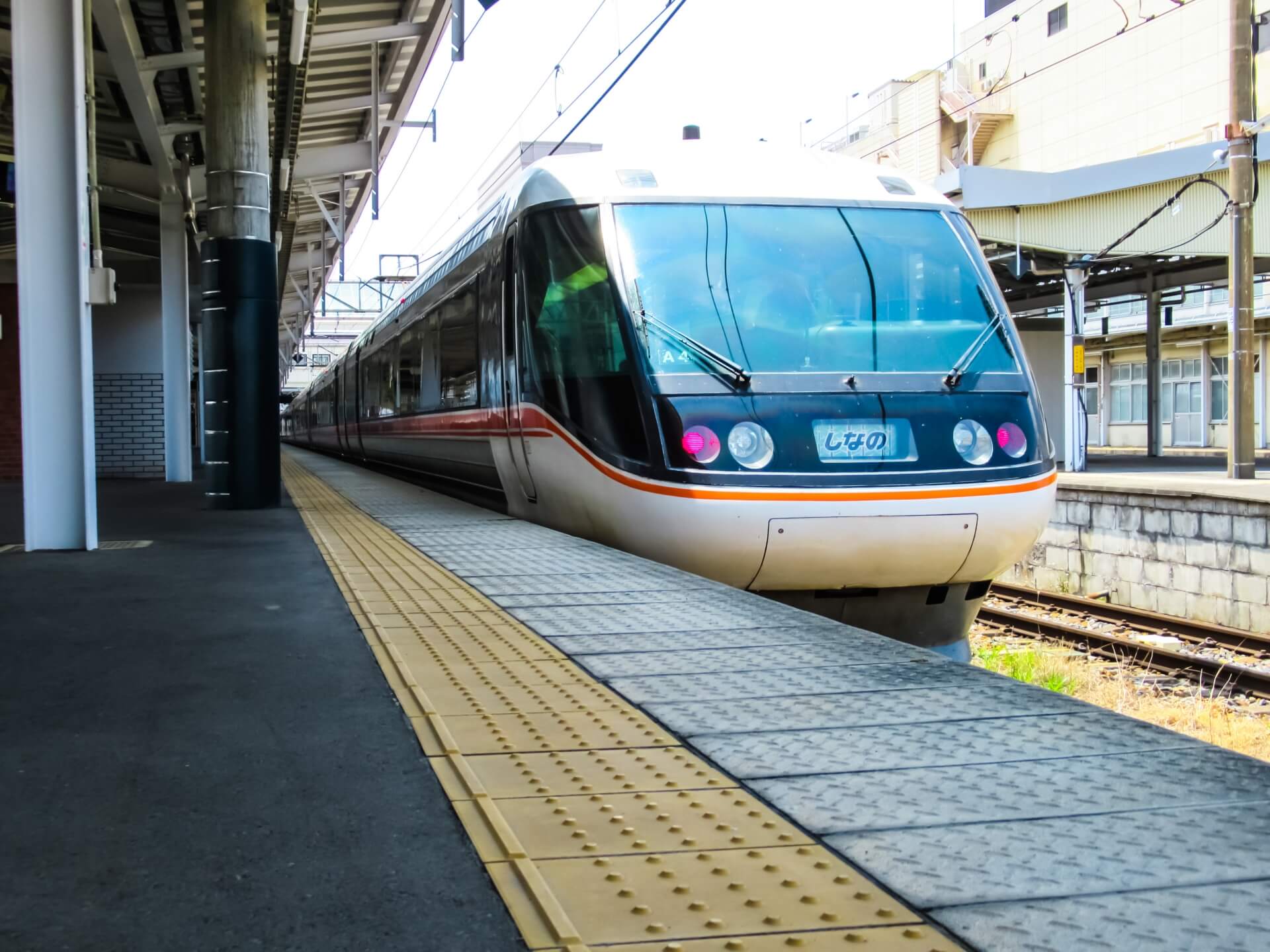
The area around Nakatsugawa Station doesn’t have much to see in terms of historical attractions or natural beauty however it does have a range of both traditional accommodation and Western-style hotels, often popular with large tour groups. As a stop on Limited Express ‘Shinano’ services running between Nagoya, Kiso-Fukushima, Matsumoto and Nagano it is easy to move to and from, with local buses running to nearby Magome and Tsumago. The appeal of staying in Nakatsugawa is convenience however the popularity of its hotels with large tour groups and distance from other attractions in the Kiso Valley such as Mount Ontake, mean that we recommend choosing Kiso-Fukushima over Nakatsugawa. For accommodation listings in the area, see our ‘Magome, Tsumago & Nakatsugawa Area’ hotel page.
25 THINGS TO DO AROUND KISO VALLEY & NAKASENDO
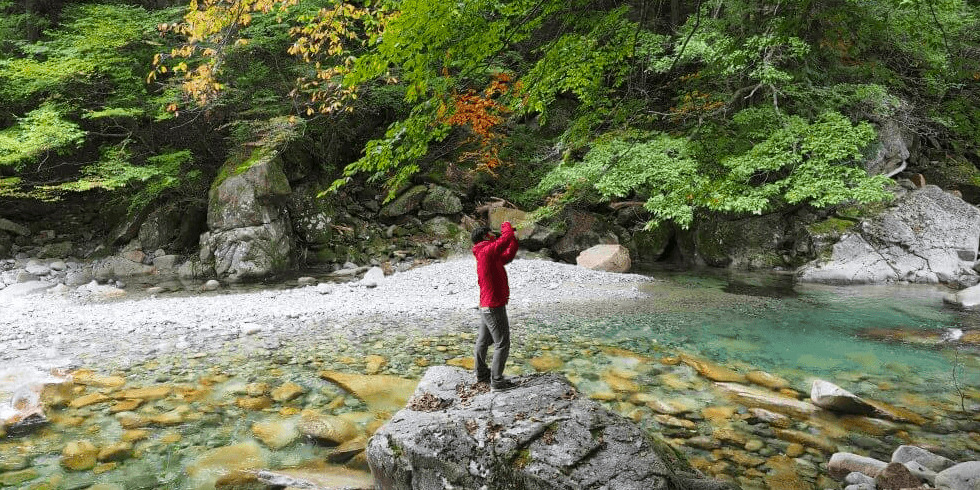
Most famous for the historic Nakasendo and its beautifully preserved post towns of Narai, Tsumago and Magome, the Kiso Valley is one of Central Japan’s most rewarding destinations. A place of natural beauty, the valley follows the Kiso River leading visitors deep into the heart of Japan, along forested trails leading to emerald rivers and waterfalls. Our ’25 Things To Do Around Kiso Valley / Nakasendo’ page has lots of great tips and suggestions to help you plan your trip and get the most out of your time there, including walking the pilgrimage trails of the ‘Ontake Kodo’ leading to the summit of Mount Ontake – a sacred mountain and Japan’s second tallest volcano after Mount Fuji.
HOW TO GET TO THE KISO VALLEY & NAKASENDO
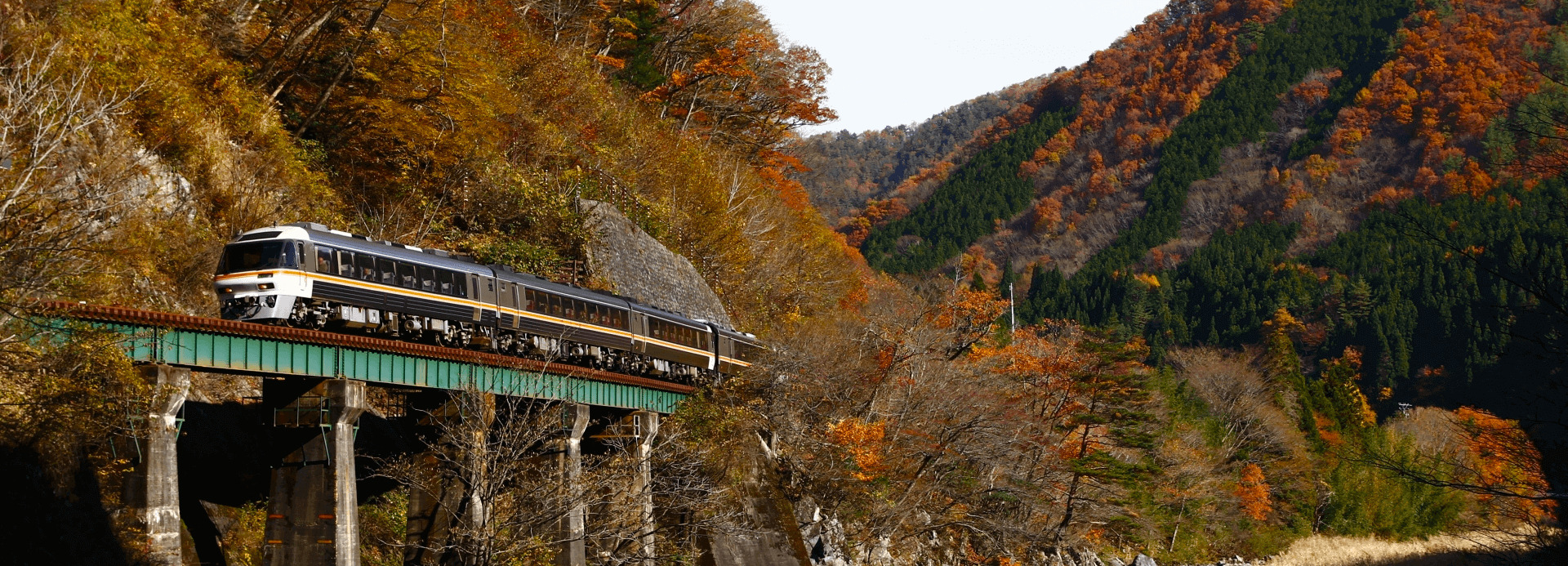
Most visitors heading to the Kiso Valley and Nakasendo will do so using the train network. Running from Nagoya to Nagano, the Limited Express ‘Shinano’ stops at Nakatsugawa Station and Kiso-Fukushima Station, making the area easy to access along one of Japan’s most scenic railway lines. For more information including detailed directions, see our ‘How To Get To The Kiso Valley & Nakasendo’ page.
TOURS & CHARTERS AROUND THE NAKASENDO TRAIL
Want to join a trek on the Nakasendo Trail?
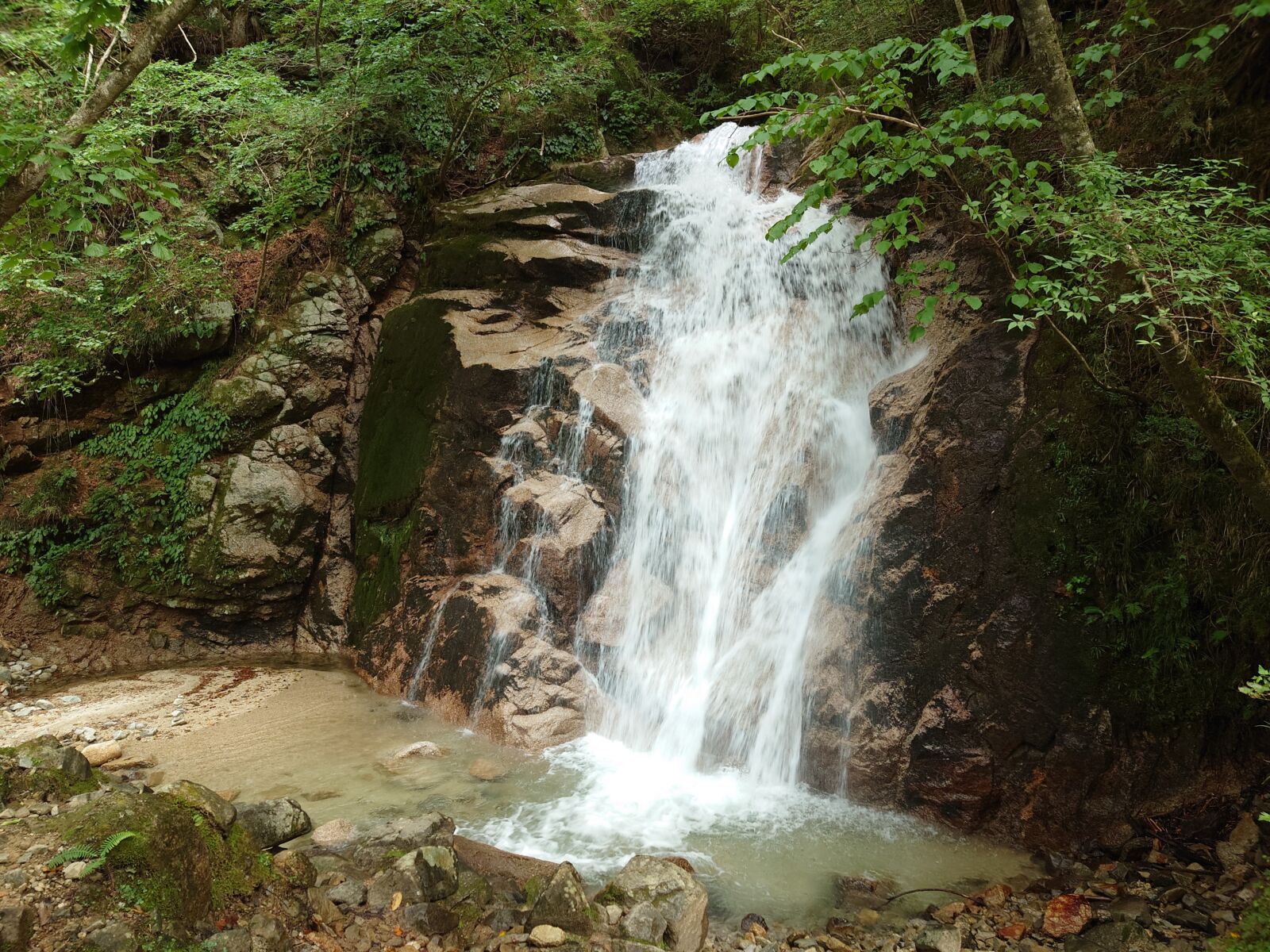
Based in Central Japan and operating much of the year, we offer multiple highly entertaining group-tours of the Nakasendo that are sure to please. All tours are led by locally-based guides and include a visit to the towns of Magome and Tsumago as well as an 8km hike on the Nakasendo itself through beautiful forest. Our tours are fun, interactive and family-friendly. For more information, or to book a tour, click on either of the banners below. Pick up options are available from Nagano, Matsumoto, and Nagoya, making it easy for you to join wherever you are.
1 Day Tour
| 1-Day Tour from Nagano & Matsumoto: Step into the Past on the Nakasendo | |
|
| |
| Period | September to December, April to June |
| Time | 08:15 – 18:30 |
| Meeting Place | Nagano Station Matsumoto Station |
| Adult Rate | ¥24,900 |
| Child Rate | ¥12,900 |

1 Day Tour
| 1-Day Tour from Nagoya: Hiking the Historic Nakasendo Trail | |
| Period | April – December |
| Time | 10:00-18:00 |
| Meeting Place | JR Nagoya Station |
| Adult Rate | ¥24,900 |
| Child Rate | ¥12,900 |

Of course, we also offer private tours and transport in and around the Nakasendo trail and Kiso Valley area, as well as other regional destinations. Our drivers and vehicles are fully certified, allowing us to transport you to and from your preferred destinations in combination with any activity that suits your schedule. All vehicles are well-maintained and in good condition, allowing you to relax and enjoy your ride to wherever you are going.
We can arrange both private tours with an English-speaking guide or a private charter, including a private vehicle and driver but without a guide. We’d love to be part of your adventure in Central Japan and help you discover even more!
Got a question about visiting the Nakasendo Trail? Click the ‘INQUIRY’ button below or contact us and let’s get planning together!





